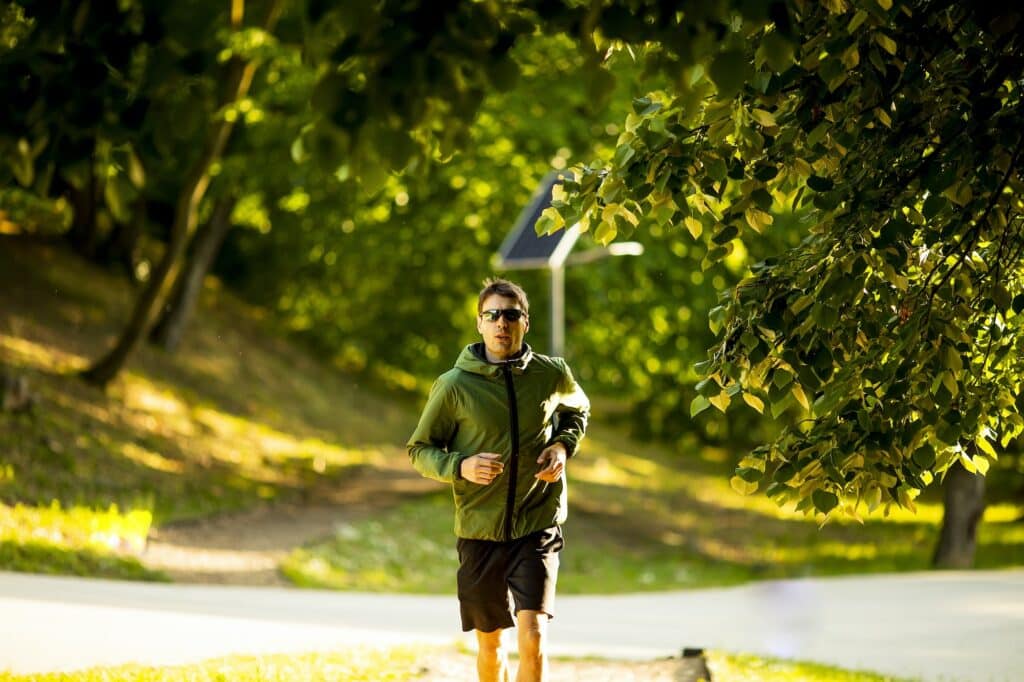Recreational Therapy
Home / Recreational Therapy

Recreational Therapy
In a world where anxiety and stress levels are skyrocketing, recreational therapy is one of the most effective ways to cope. Recreational therapy gives people the chance to do fun, meaningful things that help them find balance, boost their self-confidence, and develop important coping skills.
Recreational therapy has been proven to be an effective treatment for many mental health conditions, including depression, anxiety and post-traumatic stress disorder (PTSD). Not only does recreational therapy help people manage their symptoms, but it also improves social skills, communication skills, problem-solving skills, and overall well-being. Recreational therapy is also an important part of substance abuse treatment, as it reduces cravings, promotes recovery, and promotes a positive outlook on life.
Avisa Recovery Programs
ADDICTION TREATMENT THAT ISN’T COOKIE-CUTTER
One of the first steps when seeking treatment for substance abuse is the detoxification process. Here you are medically supervised and managed through withdrawal process to rid the body of drugs & alcohol.
Residential inpatient treatment is when a client lives on-site 24 hours a day, 7 days a week while receiving intensive inpatient treatment. Learn more about inpatient treatment and how it can help you on your journey.
The partial day program at Avisa Recovery combines the best of aspects inpatient and outpatient treatment to form a hybrid program that allows you to experience inpatient therapies on an outpatient basis.
Find out why the innovative intensive outpatient program at Avisa Recovery is your best choice when seeking an outpatient addiction treatment program in Ocean County, New Jersey.
Our outpatient program will enable your professional life to become limitless. We offer the tools for you to become the best you can be while being sober! If you’re in Ocean County, don’t wait another day to start your recovery.
The family program at Avisa Recovery is an integral part of our programming. Family therapy is an essential part of the recovery process because it allows members of the entire family system to learn how to recover as a unit while supporting their loved-one in recovery.
Let Us Help You Overcome Addiction
Request a Confidential Callback Now
What Is Recreational Therapy?
Therapeutic recreation, also known as recreational therapy, is a form of therapy that focuses on physical, emotional and cognitive needs through the use of recreational activities. Recreational therapy is based on the idea that engaging in enjoyable activities can improve one’s overall health and well-being. Recreational therapists are trained therapists who work with people of all ages and skill levels to create and implement individualized treatment plans.
Recreational therapy involves the integration of your mind, body and spirit. Through purposeful activities, you can feel more fulfilled and improve your quality of life.
Get Approved. Get Help.
We Work With Most Major Insurance Providers
- Aetna
- Amerihealth
- Anthem
- Beacon
- Behavioral Health Systems
- BCBS—Most BlueCross & BlueShield Plans
- Carelon Behavioral Health
- CareFirst
- Cigna
- ComPsych
- Coventry
- Empire BlueCross BlueShield
- GHI
- Highmark
- Humana
- Magellan
- MagnaCare
- Meritain Health
- MultPlan
- NYSHIP (New York State Insurance Plan)
- Optum
- Oxford
- PHCS
- Self-Pay
- TRICARE
- UHC
- UMR
- VA Insurance
- 90 Degree Benefits
At this time, we do not accept Medicaid or Medicare
The Importance Of Recreational Therapy
The role of recreational therapy in mental health and substance abuse treatment.
It provides a safe and nurturing space where people can discover their passions, connect with others, and learn life-saving skills. Through various recreational activities, people can boost their self-confidence, lower their stress levels, and improve their overall health.
Recreational therapy is important because it addresses the underlying causes of many mental health issues and substance abuse disorders. Through meaningful activities, people can better understand their feelings and learn healthy coping techniques. Recreational therapy gives people the opportunity to be creative, discover their interests, and find meaning in life.
The Benefits Of Recreational Therapy
- There are many benefits to recreational therapy, including improving mental health and helping people recover from addiction.
- Studies have shown that enjoyment of leisure activities can help alleviate depression, anxiety and post-traumatic stress disorder symptoms.
- It helps you unwind, improve your mood, and improve your quality of life.
- In addition, it helps people learn healthy coping techniques to replace harmful behaviours.
- By engaging in leisure activities, you can curb cravings, reduce stress, and create a positive outlook.
- This type of therapy also promotes socialisation and creates a sense of community, which is essential for sobriety.
Recreational Therapy Techniques And Activities
There are many different types of recreational therapy that are designed to meet the needs and interests of each person. Some of the most popular types of recreational therapy are:
- Sports and Physical Activities:- Not only does sports and physical activity improve your physical fitness, but it also improves your mental health. Hiking, swimming, and doing yoga can help reduce stress, improve your mood, and boost your self-esteem.
- Art Therapy:- Art therapy is the practice of creating works of art, such as paintings, drawings, and sculptures, to express feelings, reduce stress, and increase self-awareness and creativity.
- Music Therapy:- Music therapy is the use of music and sound to meet people’s emotional, cognitive and social needs. Hearing music, playing instruments or singing can help people relax, express emotions and connect with others.
- Adventure Therapy:- Adventure therapy is a form of therapy that encourages people to explore the outdoors, try new things, overcome obstacles, and become more resilient. It involves activities like hiking, climbing, camping, and more.
How Recreational Therapy Complements Traditional Treatment Methods
In addition to traditional therapy, recreational therapy can be used to improve the effectiveness of other therapy programs. Recreational therapy often works in tandem with other types of therapy, including counseling and medication. Recreational therapy offers a comprehensive approach to treatment
Recreational therapy is different from traditional therapies in that it focuses on more than just treating symptoms or underlying conditions. Instead, it focuses on overall wellness. Recreational therapy helps people find meaning, pursue their passions, and engage in healthy behaviors. By including recreational therapy in treatment programs, people can benefit from a more holistic and holistic approach to healing.
Incorporating Recreational Therapy Into Treatment Programs
Art therapy is the practice of creating works of art, such as paintings, drawings, and sculptures, to express feelings, reduce stress, and increase self-awareness and creativity.
Music therapy is the use of music and sound to meet people’s emotional, cognitive and social needs. Hearing music, playing instruments or singing can help people relax, express emotions and connect with others.
The Future Of Recreational Therapy
- As the need for holistic, evidence-based therapies increases, recreational therapy is leading the way in transforming mental health care.
- By connecting people to their passions and helping them overcome obstacles, it is an essential part of the long-term healing process.
- Recreational therapy is expected to continue to grow and develop as research and advances in the field are made.
- It has the opportunity to become an essential part of traditional mental health and substance use treatment, providing a comprehensive and individualized approach to recovery.
The Transformative Power Of Recreational Therapy In Recovery And Well-Being
Recreation therapy is a new way of treating mental health issues and substance abuse. Through the use of recreational activities, people can improve their mental health, learn coping strategies, and find meaning in their lives.
Recreational therapy has the power to change the way we think about mental health and how we support people on their journeys to recovery and wellness.
As we continue to understand the impact recreational therapy can have on people’s mental health and well-being, it’s important to recognize its potential and incorporate it into our substance abuse and mental health treatment programs.
Breaking The Cycle And Finding A New Path
Addiction to Adderall can be really tough, but it’s possible to get out of the rut and find a better way. It’s important to get help, build a support system, and live a healthy lifestyle. If you have the right help and resources, you can beat addiction and get your life back. Don’t forget that you’re not the only one, and there’s hope for the future.






